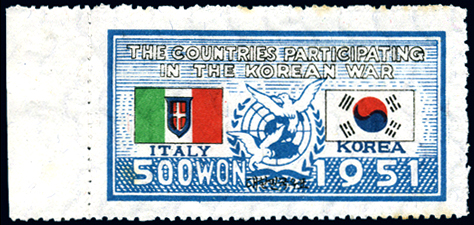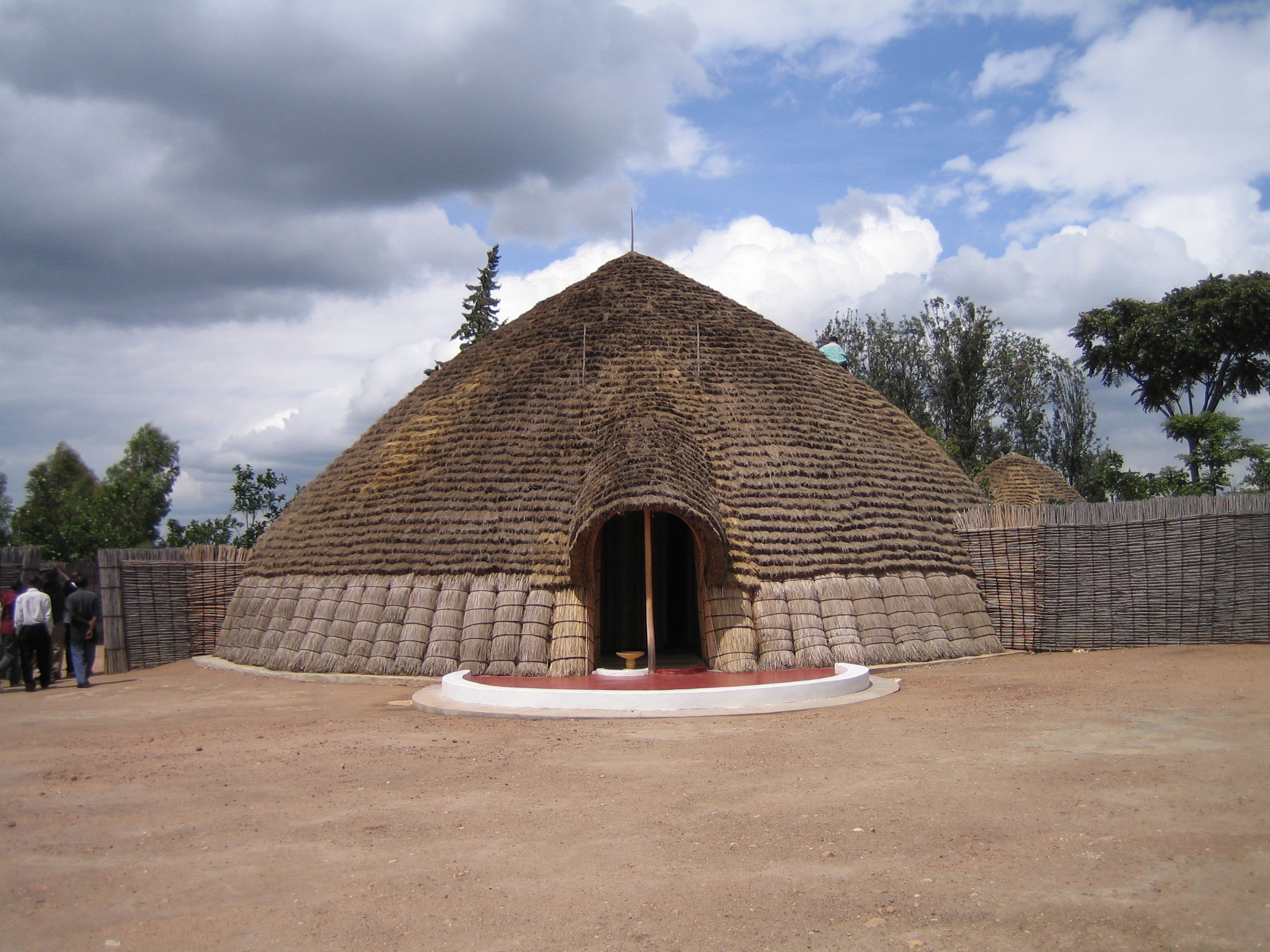|
Amelia Barbieri
Amelia Barbieri (15 November 1918 – 20 August 2016) was an Italian nurse, midwife, and lay missionary. After a career in Italy, in 1983 rather than retire she moved to Rwanda. She worked as a nurse in Rugabano and then founded a maternity center in Shyorongi. Later she moved to Byumba where she cared for abandoned children. In 1992, she founded an orphanage in the village of Muhura, in the Gatsibo District of the Eastern Province. The orphans were endangered during the Rwandan genocide but Barbieri refused to leave without them. With help from humanitarian Maria Pia Fanfani they were temporarily moved to Uganda and then relocated to Verona, Italy. Her dedication to the children's welfare was honored by President Oscar Luigi Scalfaro, who conferred upon her the distinction (Commander of Merit of the Republic) in 1995. When the genocide ended Barbieri returned to Rwanda and ran the orphanage until 2008. Because of failing health, she brought in assistants and worked with them un ... [...More Info...] [...Related Items...] OR: [Wikipedia] [Google] [Baidu] |
Maria Pia Fanfani
Maria Pia Fanfani (formerly Mariapia Vecchi, née Maria Pia Tavazzani, 29 November 1922 – 7 November 2019) was an Italian photographer, writer, and humanitarian worker. Born in Pavia, she attended the (Brera Academy, Academy of Fine Arts in Brera) in Milan. After completing her schooling, she worked in the family textile business. During World War II, she married Giuseppe Vecchi and founded a humanitarian organization to assist in war relief. Joining the Italian resistance movement, resistance, she worked as a courier, assisted Jews fleeing to Switzerland, and became active in anti-Nazi campaigns. At the end of the war, Vecchi established ties with the Italian-American community to bring humanitarian aid to war-torn Italy. Interested in photography, Vecchi studied with Evelyn Hofer and began traveling the world to document human hardships and raise awareness of people's struggles by publishing books, including ''Italian Embassies of the World'', ''Poland Second Millennium'' an ... [...More Info...] [...Related Items...] OR: [Wikipedia] [Google] [Baidu] |
Northern Province, Rwanda
Northern Province ( rw, Intara y'Amajyaruguru; french: Province du Nord; nl, Noordelijke Provincie) is one of Rwanda's five provinces. It was created in early January 2006 as part of a government decentralization program that re-organized the country's local government structures. Northern Province comprises most of the former provinces of Ruhengeri and Byumba, along with northern portions of Kigali Rural. It is divided into the districts of Burera, Gicumbi, Gakenke, Musanze, and Rulindo. The capital city of Northern Province is Musanze. The province's official languages are English, French and Kinyarwanda. The governor, appointed by presidential decree, is currently Hon. Dancilla Nyirarugero. The preceding governors of Northern province were Gatabazi Jean Marie Vianney, Claude Musabyimana Claude may refer to: __NOTOC__ People and fictional characters * Claude (given name), a list of people and fictional characters * Claude (surname), a list of people * Claude Lorr ... [...More Info...] [...Related Items...] OR: [Wikipedia] [Google] [Baidu] |
Four-wheel Drive
Four-wheel drive, also called 4×4 ("four by four") or 4WD, refers to a two-axled vehicle drivetrain capable of providing torque to all of its wheels simultaneously. It may be full-time or on-demand, and is typically linked via a transfer case providing an additional output drive shaft and, in many instances, additional gear ranges. A four-wheel drive vehicle with torque supplied to both axles is described as "all-wheel drive" (AWD). However, "four-wheel drive" typically refers to a set of specific components and functions, and intended off-road application, which generally complies with modern use of the terminology. Definitions Four-wheel-drive systems were developed in many different markets and used in many different vehicle platforms. There is no universally accepted set of terminology that describes the various architectures and functions. The terms used by various manufacturers often reflect marketing rather than engineering considerations or significant technical d ... [...More Info...] [...Related Items...] OR: [Wikipedia] [Google] [Baidu] |
International Federation Of Red Cross And Red Crescent Societies
The International Federation of Red Cross and Red Crescent Societies (IFRC) is a worldwide humanitarian aid organization that reaches 160 million people each year through its 192-member National Societies. It acts before, during and after disasters and health emergencies to meet the needs and improve the lives of vulnerable people. It does so with impartiality as to nationality, race, gender, religious beliefs, class and political opinions. The IFRC is part of the International Red Cross and Red Crescent Movement along with the International Committee of the Red Cross (ICRC) and 192 National Societies. The IFRC's strength lies in its volunteer network, community-based expertise and independence and neutrality. It works to improve humanitarian standards, as partners in development and in response to disasters. It persuades decision makers to act in the interests of vulnerable people. It works to enable healthy and safe communities, reduce vulnerabilities, strengthen resilience ... [...More Info...] [...Related Items...] OR: [Wikipedia] [Google] [Baidu] |
Italian Red Cross
The Italian Red Cross (IRC, it, Croce Rossa Italiana or ''CRI'') is the Italian national Red Cross society. The Italian Red Cross was one of the original founding members of the International Committee of the Red Cross in 1919. History Early history The present-day Italian Red Cross was founded under the name of ''Comitato dell'Associazione Italiana per il soccorso ai feriti ed ai malati in guerra'' in Milan on June 15, 1864, two months before the signing of the Geneva Convention. On June 20, 1864, the Third Italian War of Independence broke out and four groups of IRC volunteers were sent to Custoza. In 1872, the headquarters were moved to Rome, and a Central Committee was formed. Since then, the IRC has expanded its operations throughout the entire territory of the country, and has been deployed to face a growing array of activities and emergencies, starting with the Casamicciola earthquake of 1883. The American Red Cross has long been active in Italy, working in cooperati ... [...More Info...] [...Related Items...] OR: [Wikipedia] [Google] [Baidu] |
Fatuma Ndangiza
Fatuma Ndangiza (born 1968) is a women's rights advocate, policy expert, and politician. As of January 2024, she is serving her second term as a Rwandan member of the East African Legislative Assembly. Born and raised in a refugee camp in Uganda, she returned to Rwanda during the civil war. Initially she settled in Byumba and led the SOS Ramira initiative to assist women and children in acquiring basic supplies and treatment to meet their needs. When the Rwandan Patriotic Front took control of Kigali, she moved to the capital and began working in the Ministry for Women and Family Promotion to provide support and relief to survivors and victims of the Rwandan genocide. She helped to create the National Women's Council and its regional and local frameworks to empower women to help them achieve political and economic parity through legal change and advocacy. She worked with the women's ministry until 2002. Ndangiza led the National Unity and Reconciliation Commission from 2002 to 2 ... [...More Info...] [...Related Items...] OR: [Wikipedia] [Google] [Baidu] |
Fergal Keane
Fergal Patrick Keane (born 6 January 1961) is an Irish foreign correspondent with BBC News, and an author. For some time, Keane was the BBC's correspondent in South Africa. He is a nephew of the Irish playwright, novelist and essayist John B. Keane. Early life Born in London, Keane grew up in Dublin and later in Cork. His father was the Listowel-born actor, Éamonn Keane. He attended three primary schools in Dublin: Scoil Bhride, a gaelscoil (Irish-language school), St. Mary's College and Terenure College, and, later, one primary school in Cork, St. Joseph's. In a 1999 interview with the ''Independent'', Keane said that his gaelscoil education proved useful in later life: "The grounding in the Irish language I had at Scoil Bhride has never left me. In a foreign country when I'm on the phone and don't wish people to understand what I'm saying, I speak Irish and no Serb listening in is going to crack the code." His secondary education was at Presentation Brothers College in ... [...More Info...] [...Related Items...] OR: [Wikipedia] [Google] [Baidu] |
Rwandan Civil War
The Rwandan Civil War was a large-scale civil war in Rwanda which was fought between the Rwandan Armed Forces, representing the country's government, and the rebel Rwandan Patriotic Front (RPF) from 1October 1990 to 18 July 1994. The war arose from the long-running dispute between the Hutu and Tutsi groups within the Rwandan population. A 1959–1962 revolution had replaced the Tutsi monarchy with a Hutu-led republic, forcing more than 336,000 Tutsi to seek refuge in neighbouring countries. A group of these refugees in Uganda founded the RPF which, under the leadership of Fred Rwigyema and Paul Kagame, became a battle-ready army by the late 1980s. The war began on 1 October 1990 when the RPF invaded north-eastern Rwanda, advancing into the country. They suffered a major setback when Rwigyema was killed in action on the second day. The Rwandan Army, assisted by troops from France, gained the upper hand and the RPF were largely defeated by the end of October. Kagame, who h ... [...More Info...] [...Related Items...] OR: [Wikipedia] [Google] [Baidu] |
Rwandan Patriotic Front
The Rwandan Patriotic Front (RPF–Inkotanyi, french: Front patriotique rwandais, FPR) is the ruling political party in Rwanda. Led by President Paul Kagame, the party has governed the country since its armed wing defeated government forces, winning the Rwandan Civil War in 1994. Since 1994, the party has ruled Rwanda using tactics which have been characterised as authoritarian. Elections are manipulated in various ways, which include banning opposition parties, arresting or assassinating critics, and electoral fraud. History Rwandese Alliance for National Unity Following the overthrow of Idi Amin in 1979, the Tutsi refugee intelligentsia in Uganda set up the region's first political refugee organization, the Rwandese Alliance for National Unity (RANU), to discuss a possible return to Rwanda. Though primarily a forum for intellectual discussion, it became militant after Milton Obote's election of 1980 resulted in many Tutsi refugees joining Yoweri Museveni in fighting the Ug ... [...More Info...] [...Related Items...] OR: [Wikipedia] [Google] [Baidu] |
Juvénal Habyarimana
Juvénal Habyarimana (, ; 8 March 19376 April 1994) was a Rwandan politician and military officer who served as the second president of Rwanda, from 1973 until 1994. He was nicknamed ''Kinani'', a Kinyarwanda word meaning "invincible". An ethnic Hutu, Habyarimana served in several security positions including minister of defense under Rwanda's first president, Grégoire Kayibanda. After overthrowing Kayibanda in a coup in 1973, he became the country's new president and eventually continued his predecessor's pro-Hutu policies. He was a dictator, and electoral fraud was suspected for his unopposed re-elections: 98.99% of the vote on 24 December 1978, 99.97% of the vote on 19 December 1983, and 99.98% of the vote on 19 December 1988. During his rule, Rwanda became a totalitarian, one-party order in which his MRND-party enforcers required people to chant and dance in adulation of the President at mass pageants of political "animation". While the country as a whole had become slig ... [...More Info...] [...Related Items...] OR: [Wikipedia] [Google] [Baidu] |
Tutsi
The Tutsi (), or Abatutsi (), are an ethnic group of the African Great Lakes region. They are a Bantu-speaking ethnic group and the second largest of three main ethnic groups in Rwanda and Burundi (the other two being the largest Bantu ethnic group Hutu and the Pygmy group of the Twa). Historically, the Tutsi were pastoralists and filled the ranks of the warriors' caste. Before 1962, they regulated and controlled Rwandan society, which was composed of Tutsi aristocracy and Hutu commoners, utilizing a clientship structure. They occupied the dominant positions in the sharply stratified society and constituted the ruling class. Origins and classification The definition of "Tutsi" people have changed through time and location. Social structures were not stable throughout Rwanda, even during colonial times under the Belgian rule. The Tutsi aristocracy or elite was distinguished from Tutsi commoners. When the Belgian colonists conducted censuses, they wanted to identify the peop ... [...More Info...] [...Related Items...] OR: [Wikipedia] [Google] [Baidu] |
Hutu
The Hutu (), also known as the Abahutu, are a Bantu ethnic or social group which is native to the African Great Lakes region. They mainly live in Rwanda, Burundi and the eastern Democratic Republic of the Congo, where they form one of the principal ethnic groups alongside the Tutsi and the Great Lakes Twa. Demographics The Hutu is the largest of the three main population divisions in Burundi and Rwanda. Prior to 2017, the CIA World Factbook stated that 84% of Rwandans and 85% of Burundians are Hutu, with Tutsis being the second largest ethnic group at 15% and 14% of residents of Rwanda and Burundi, respectively. However, these figures were omitted in 2017 and no new figures have been published since then. The Twa pygmies, the smallest of the two countries' principal populations, share language and culture with the Hutu and Tutsi. They are distinguished by a considerably shorter stature. Origins The Hutu are believed to have first emigrated to the Grea ... [...More Info...] [...Related Items...] OR: [Wikipedia] [Google] [Baidu] |





